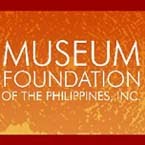
Statement on the Closure of the “Kulo” Exhibit at the CCP
by the Department of Art Studies, UP Diliman
13 August 2011
No to Closure, No to Censorship!
We, faculty members of the Department of Art Studies, University of the Philippines in Diliman, urge the Cultural Center of the Philippines (CCP) to reopen the exhibition “Kulo” featuring 32 works from artists who contributed to the curatorial concept of revolutionary ferment in contemporary Philippine society as inspired by Dr. Jose Rizal’s life and ideals.
While there are contending interpretations of an image presented by art, the ethical course of action is to process the contentions and that is what art ensures: a process of communicative action. The closure of an exhibition only achieved the closure of democratic, informed and thoughtful engagement.
While freedom of expression and artistic license are not absolute and must be guided with reflexivity, accountability and responsibility on the part of makers of art, the freedom is fundamental, and inalienable. The work in question is art, and while it is a site of struggle over meanings and definitions, it is protected as expression in a free society. It may violate and offend community and common standards of morality, but it would be more productive for us to bring the discussion in a well-informed manner, to study and discuss our own responses and in the process, gain new knowledge and insights, and hone our visual competencies and literacy. Why for instance do images have the power to offend and provoke an excess of emotion and action?
Now, without the artworks to look at and experience in actuality, and without benefit of proper framing and venue, such informed and engaged discussions cannot take place and so many important ideas are consequently repressed. We sadly observe that the issue has been reduced to the level of polemics, grandstanding and shouting matches over the more vital meaning of art and what role artists play in contemporary times.
The CCP should protect its mandate, reclaim and maintain its autonomy. It must take the lead, not only in guarding artistic freedom but also in ensuring a safe haven where artists as public intellectuals have the freedom to exhibit. We educators will rally behind a cultural institution that will provide the venue and platform for artists, educators, policymakers, students of art and the “public” – by no means homogenous – to come together and raise and address issues in an atmosphere conducive to forming a community of critical audiences of art.
Re-open the exhibition!
Defend the freedom of expression!





























































































